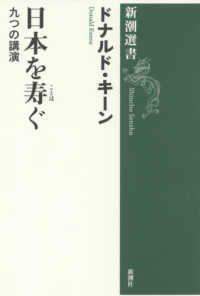感動( 134 ) 從吳鳴教授退休感言談紐最轟動的退休演說:漫談"Donald Keene 譯/著的日本文學" 17: 哥倫比亞大學最後一堂課,萬眾矚目 “Matsukaze,” a play by the writer Kanami, “all that is left is the wind in the pines.”
二○二三年十一月系主任金仕起兄問我是否做一場退休演講,我說就不要了吧!乞食講堂三十年,歲月于邁,終也到了告別的時刻。系上同事退休,有人轉身就走,有人做一場告別演講,辦一場茶會或餐會,邀請相關師友參加,並發通知邀畢業生共襄盛舉。近年退休同事,不舉行告別演講者居多,我隨大流而行。二○二三年十二月期末系所務會議前,播放系上製作的教學回顧投影片,視如榮退儀式。系上送了一部電療器照顧我的健康,同事好友林美香老師送一瓶馬祖陳年大麯國宴酒,陳秀芬老師贈送皮製封套筆記本,銘感於心。期末聚餐冠名榮退餐會,同事喝兩杯,揮手自茲去。沒有另外安排退休慶祝會,不煩勞動師友,安安靜靜轉身,回到所從來處。

Ozier Muhammad/The New York Times Donald Keene, a Japanese literature expert, led his final class at Columbia on Tuesday.
Columbia Professor’s Retirement Is Big News in Japan
BY COREY KILGANNON APRIL 26, 2011 6:19 PM April 26, 2011 6:19 pm 14
he waited for questions, telling his students, “Just think, if you ask a question, you’ll be seen by a million Japanese.”This was the final session of Professor Keene’s graduate seminar devoted to traditional Japanese Noh plays.
While discussing his departure during the class, he quoted the final lines of “Matsukaze,” a play by the writer Kanami, the last line of which says “all that is left is the wind in the pines.”
Sources and themes[edit]
Royall Tyler and other scholars attribute the bulk of the work to Zeami, claiming that it is based on a brief dance piece by his father Kan'ami. The play's contents allude strongly to elements of the Genji monogatari, particularly the chapters in which Hikaru Genji falls in love with a lady at Akashi and later (temporarily) leaves her. The early section written by Kan'ami quotes from the "Suma" chapter of the monogatari,[6] the play's setting at Suma evokes these events and the theme of women of the shore who, after an affair with a high-ranking courtier, are left waiting for his return. The play also contains many allusions to the language of the monogatari, which would have been recognized by the poets of Zeami's day.
The name of the chief character, and title of the play, Matsukaze, bears a poetic double meaning. Though Matsu can mean "pine tree" (松), it can also mean "to wait" or "to pine" (待つ). Matsukaze pines for the return of her courtier lover, like the woman of Akashi in the Genji, and like the woman in Zeami's play Izutsu. Tyler also draws a comparison between the names of the two sisters to a traditional element in Chinese poetry, referring to different strains of music as the Autumn Rain and the Wind in the Pines; Autumn Rain is strong and gentle intermittently, while the Wind in the Pines is soft and constant. Though the characters in the play actually represent the opposite traits – Matsukaze alternating between strong emotional outbursts and gentle quietness while her sister remains largely in the background, and acts as a mediating influence upon Matsukaze – the comparison is nevertheless a valid and interesting one.
Finally, Tyler offers the idea that the two women are aspects of a single psyche, or that they are "purified essences of human feeling... twin voices of the music of longing" and not actually fully fleshed people.
 Ozier Muhammad/The New York Times Donald Keene, a Japanese literature expert, led his final class at Columbia on Tuesday.
Ozier Muhammad/The New York Times Donald Keene, a Japanese literature expert, led his final class at Columbia on Tuesday.







